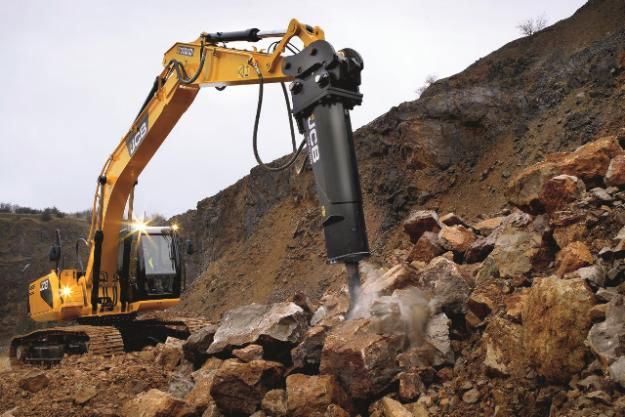Comprehensive Excavation Strategies: Understanding the Principles for Success
In the realm of construction and civil engineering, the value of reliable excavation techniques can not be overemphasized. The mindful planning, exact implementation, and precise focus to information needed in excavation tasks demand a comprehensive method that incorporates numerous fundamental facets. From initial soil analysis to the execution of precaution and normal development monitoring, grasping these core components is vital for attaining success in any type of excavation venture. Nonetheless, truth proficiency exists not merely in comprehending these basics yet in flawlessly incorporating them to browse the intricacies of excavation jobs with skill.
Recognizing Excavation Job Planning

The initial phase of any kind of excavation task is the planning phase, where important decisions are made that can substantially influence the result of the project. Understanding the task range, timeline, and budget plan constraints is important for producing a detailed excavation strategy that makes sure the project's success.
One key element of excavation project preparation is the advancement of a detailed timeline that lays out the sequence of deadlines, tasks, and landmarks. By very carefully considering all these aspects throughout the preparation stage, excavation projects can be performed successfully and effectively, leading to successful outcomes - dump truck companies in ohio.
Soil Analysis and Website Analysis
Conducting complete dirt analysis and site examination is a crucial action in the prep work stage of any excavation job. Dirt evaluation entails determining the structure, structure, and residential or commercial properties of the dirt at the excavation website. This details is essential for recognizing the dirt's bearing capability, dampness web content, and possibility for erosion, which are key consider establishing the excavation methods and devices needed for the job.
Website evaluation goes beyond soil evaluation and incorporates a more comprehensive assessment of the overall site conditions. This examination includes determining any type of possible hazards, such as underground energies, ecological concerns, or unsteady surface, that could impact the excavation procedure. By extensively reviewing the website, task supervisors can create efficient excavation approaches that focus on safety, effectiveness, and environmental protection.
Making use of innovative innovations like ground-penetrating radar, dirt tasting, and drone surveys can enhance the accuracy and performance of soil analysis and website examination. Investing time and resources in these preliminary steps can inevitably conserve time and avoid pricey hold-ups or problems during the excavation procedure.
Equipment Option and Use
Effective excavation projects depend heavily on tactical tools choice and use to guarantee optimum performance and productivity. Choosing the best tools for the work is important in maximizing effectiveness and minimizing downtime. Variables such as the sort of dirt, deepness of excavation, and project range play a significant duty in figuring out the most ideal equipment for the task available.

Along with picking the ideal tools, correct utilization is key to project success. Operators must be trained to handle the equipment securely and successfully - excavating ohio. Normal maintenance checks and timely repairs help protect against failures and ensure regular efficiency throughout the job
Security Measures and Regulations Conformity
In the world of excavation projects, prioritizing precaution and compliance with policies is paramount to ensuring a secure and legitimately sound operational environment. Precaution include a variety of techniques, consisting of carrying out complete site assessments, applying appropriate signage and barriers, and supplying sufficient safety training for all employees included in the excavation process. Adherence to laws, such as OSHA demands in the United States, makes sure that the excavation project meets the needed requirements to protect employees, onlookers, and the surrounding environment.

Surveillance Development and Adjusting Techniques
How can project supervisors successfully track the development of excavation projects and adjust their methods appropriately to optimize end results? Tracking progress is crucial for making certain that excavation tasks remain on track and fulfill target dates. Task supervisors can use various devices and strategies to track development, such as daily progression reports, normal site inspections, and progressed monitoring modern technologies like drones and GPS tracking systems. By continually checking the task's improvement, managers can determine any kind of prospective hold-ups or issues early and take proactive procedures to address them.

Verdict
Finally, mastering the principles of detailed excavation techniques is important for the success of any kind of job. By understanding task preparation, examining soil and website conditions, picking suitable equipment, conforming with safety laws, and keeping an eye on progress, task supervisors can guarantee a effective and smooth weblink excavation procedure. Executing these approaches will certainly result in effective outcomes and lessen prospective threats or troubles during the excavation job.
The initial stage of any excavation job is the preparation stage, where crucial decisions are made that can dramatically affect the end result of the task. Comprehending the task budget plan, timeline, and range restraints is essential for producing a thorough excavation plan that makes sure the job's success.
Just how can predict managers efficiently track the innovation of excavation jobs and adjust their approaches as necessary to optimize outcomes? By very closely checking progression and being eager to adjust strategies, job supervisors can enhance the overall success of excavation projects.
By comprehending job preparation, examining dirt and website problems, picking appropriate tools, complying with safety regulations, and keeping track of progress, project supervisors can make certain a reliable and smooth excavation procedure.